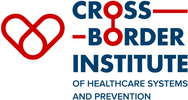Contact:
Project Period
April 2024 - April 2028
PJIneeds
Functional and psychosocial needs of working-age patients during rehabilitation after periprosthetic infection of the hip or knee joint - development of a cross-border supportive rehabilitation program
PIs: Martin Stevens, Inge van den Akker-Scheek, Max Ettinger, Gesine H. Seeber
PhD student: Amarins Koster
Periprosthetic hip/knee joint infection (PJI) is a devastating complication with a profound impact on the lives of those affected. It is particularly problematic for the growing group of younger patients who need to return to the labor market with their artificial joint. Although the incidence of PJI is relatively low (1-2%), it still represents a significant absolute number of approximately 4000-8000 patients per year in Germany alone. PJI causes long-lasting functional and psychosocial limitations and generates high costs for the healthcare system. Current PJI research mainly focuses on infection diagnosis and management, but research on effective rehabilitation after PJI management is lacking. Therefore, this cross-border project aims to develop a rehabilitation support program for working-age hip/knee PJI patients. By addressing these patients’ specific needs, we strive to improve their rehabilitation process after initial treatment, thereby helping patients reach their best possible recovery. The rehabilitation support program will be developed in co-creation with different stakeholders based on insights gained from three preparatory studies (both qualitative and quantitative) conducted during the project. Finally, the newly developed rehabilitation support program’s implementation and reception will be evaluated during a pilot feasibility study. This innovative research project will be a pivotal step in improving the rehabilitation of working-age patients with PJI.
Funded by
DRV OL-HB (German Pension Insurance Oldenburg-Bremen)

